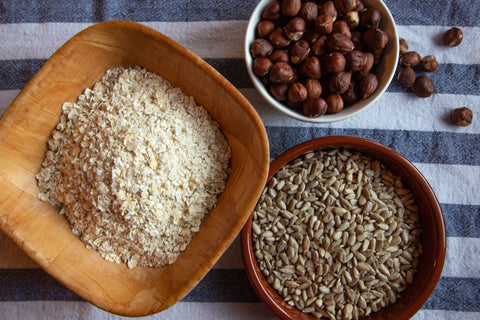What's the best way to get Vitamin K?
Posted on January 29 2020

Vitamin K is one of those nutrients that deserves a little more attention. You know that B Vitamins are for energy, Vitamin C supports immunity and D3 is key in winter. But what about when you get down the alphabet to K? Despite the lack of limelight, Vitamin K is central to your health. So, it’s important to get enough via your diet. Let’s take a look at the best ways to do this.
What does Vitamin K do?
First off, a recap on what Vitamin K does for your health. There are two main types of Vitamin K: K1 and K2, with each playing a slightly different role. Vitamin K1 is known as the ‘coagulation’ vitamin, as it keeps your body’s blood-clotting system in check. And Vitamin K2 activates important proteins in your bones and blood, like Matrix Gla-protein, which keep your arteries healthy by preventing calcium build-up. To put it simply, Vitamin K keeps calcium at the right levels, in the right places.
Which foods contain K1?
If you love your veg, you’re in luck here. Vitamin K1 is produced by plants and is mostly found in nutrient-dense leafy vegetables. It’s pretty easy to work into your diet, simply because there are so many sources. Even more reason to keep eating your greens. Here are a few with particularly high levels:

What about K2?
This is where it gets a bit more specific. There aren’t as many common sources when it comes to Vitamin K2, which is why many individuals choose to take a supplement to keep up their levels. This form of Vitamin K is mainly found in fermented foods and animal products. As it can’t be stored by your body, you need to consume it regularly through the right foods. However, this can be trickier than expected, so you need to keep a close eye on whether you’re getting enough. Here are a few sources to keep in mind:

What to remember
Taking care of your heart health is a big deal, and Vitamin K helps you do this. Although K1 and K2 are similar, they’re not exactly the same, so you need to get the right balance. You should find it easy enough to get enough K1 from food alone, but K2 can be a bit trickier. So, if you choose to supplement with K2, try and opt for MK-7, the most biologically active form. This way, you’ll have the best chance at absorbing this important vitamin.




